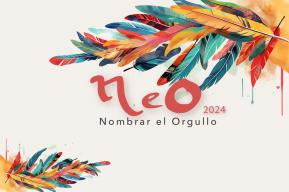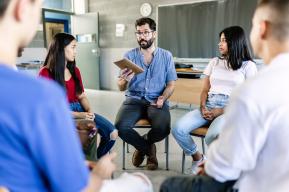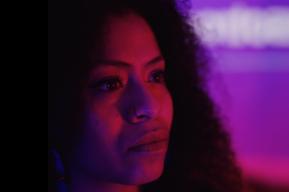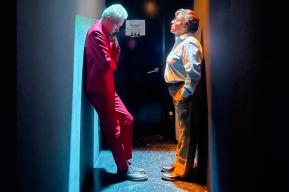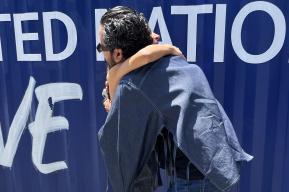In January 2021, Facebook began directing their users to AboutHolocaust.org, a website developed by UNESCO and the World Jewish Congress (WJC) to provide facts. It fights Holocaust denial and distortion with simple authoritative answers to questions such as ‘What was the Holocaust?’ and ‘Were Jews the only victims of Nazi persecution?’ Facebook now makes the website available in 12 languages.
UNESCO is undertaking wider consultations with Facebook and other social networks to help improve content moderation, ensure the survival of vibrant independent media, and educate audiences to think critically about information. On Holocaust Remembrance Day 2022, UNESCO and WJC launched a new partnership with TikTok to tackle Holocaust distortion and denial.

Knowing about the Holocaust is crucial to counter antisemitism today and to prevent genocide in the future. UNESCO and the UN Department of Global Communications have commissioned an Oxford Internet Institute study of online Holocaust distortion to help develop a teachers’ guide and interactive digital educational resources. UNESCO was also a partner in the #ProtectTheFacts social media campaign launched in January 2021 to raise awareness about the dangers of Holocaust denial and distortion.
History has shown us that genocide and other atrocities begin with words. The hate speech on the rise worldwide has the potential to incite violence, undermine social cohesion and cause psychological and physical harm based on xenophobia, racism, antisemitism, anti-Muslim hatred and other forms of intolerance.
To encourage action, UNESCO and the UN Office of the Special Adviser on the Prevention of Genocide (OSAPG) convened a Global Multi-stakeholder Forum and a Global Education Ministers Conference on addressing hate speech through education in October 2021, to identify key education policy priorities to address threats posed by hate speech.
This hatred is not new. But what has changed more recently is the influence and magnitude of social media platforms, which have become an echo chamber that amplifies hate speech.

Global Citizenship Education (GCED) is UNESCO’s response to these challenges. Under its banner, UNESCO works on several fronts, including education about the Holocaust and genocide, and preventing violent extremism through education (PVE-E).
UNESCO is helping countries deliver education programmes that build learners' resilience to violent extremism by imparting knowledge and values that nurture critical thinking, empathy and responsible global citizenship.



